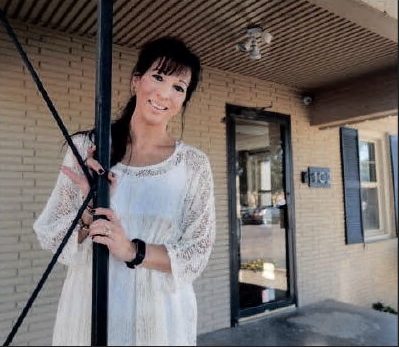As an 18-year-old college student, Lisa Bownds thought she was in a relationship with a man whom she thought was her boyfriend.
It was later determined the man whom Bownds believed was her boyfriend was actually serving as her pimp. Bownds didn’t share that information for 40 years.
However, in September 2016, Bownds founded the nonprofit organization Reflection Ministries with the sole purpose of combating sex trafficking.
“I lived a lot of times with guilt and shame and never shared with anyone because I couldn’t. I was too embarrassed,” she said. “Forty years later, I knew I had to step up and do something about it. A couple years ago, I met with law enforcement and understanding where we needed to fill in the gaps and where were we missing resources.”
On Thursday and Friday, Reflection Ministries and Traffick911 is hosting a first responders training for domestic sex trafficking.
Thursday’s training will take place at First Presbyterian Church at 8:30 a.m. to 12:30 p.m. in Midland. Friday’s training is at First Baptist Church from 8:30 a.m. to 12:30 p.m. in Odessa. Bownds said the training is open to the public.
Despite the boom and bust of the oil field, Bownds said sex trafficking remains a constant in the Midland-Odessa area, because of its proximity to Interstate 10 and Interstate 20.
“We are a huge circuit for that trafficking market,” she said. “Trafficking is unfortunately second in the nation next to guns and drugs. It’s easy to transport people. It’s easy to transport them across state lines. People don’t notice when you have multiple people in the car. It’s not as visible as trying to smuggle weapons or drugs. It’s also a commodity that can be reused. One trafficker can make an easy million dollars a year based on three individuals.”
Dr. Cori Armstead, who was named the director of operations of Reflection Ministries in May, said the first responders training will be important — especially for Department of Public Safety officers.
Prior to Reflection Ministries, Armstead worked in hospice and at Midland Memorial Hospital as certified sexual assault examiner and did the forensic exams for 14 years.
“They are goin to be the likely people that are going to come across the victims of human trafficking when they are doing vehicle checks and any sort of violation,” Armstead said about DPS officers. “It’s important that they recognize the signs, because it’s not going to be very blatant. Victims aren’t going to yell out. It’s going to take the training of being able to understand and recognize those subtle signs and be able to act on it and do something with it.”
Bownds said the rise of social media has also increased the accessibility of sex trafficking.
The social media platform most widely used is Snapchat.
“Social media drives trafficking,” she said. “Thankfully the federal government is starting to catch on and hold Backpage and Craigslist responsible for buy and selling. You can buy a sofa as well as you can buy a person all in the same website. They started to crackdown and change that a little bit. It’s easy for traffickers to move people around, keep tabs on them and connect with them on social media.”
Over the last two years, Bownds has helped 12 people escape the life of sex trafficking.
Reflection Ministries is finalizing a lease that would allow the nonprofit organization to have a crisis center to safely house victims. Bownds hopes to open that crisis center in the summer of 2019.
“We don’t have our crisis center open right now, but we are still able to meet individuals, get them into a safe place and off the street,” Bownds said. “Because of our organization working so hard over the last couple of years, we have connections from Florida to New York to Canada in order to put (victims) into different programs.”
Armstead said Reflection Ministries’ crisis center would be one the first in the nation that would be able to take in victims straight from the street — barring the individual is medically and psychologically stable.
“It’s key for us to be successful here,” she said. “There are not many resources for adults over the age of 18 in human trafficking. Once they turn 18, it’s assumed that it’s their choice and so we don’t have any resources for safe shelter for these victims. They really don’t self identify because they know there’s nowhere they can go that we can keep them safe.”




